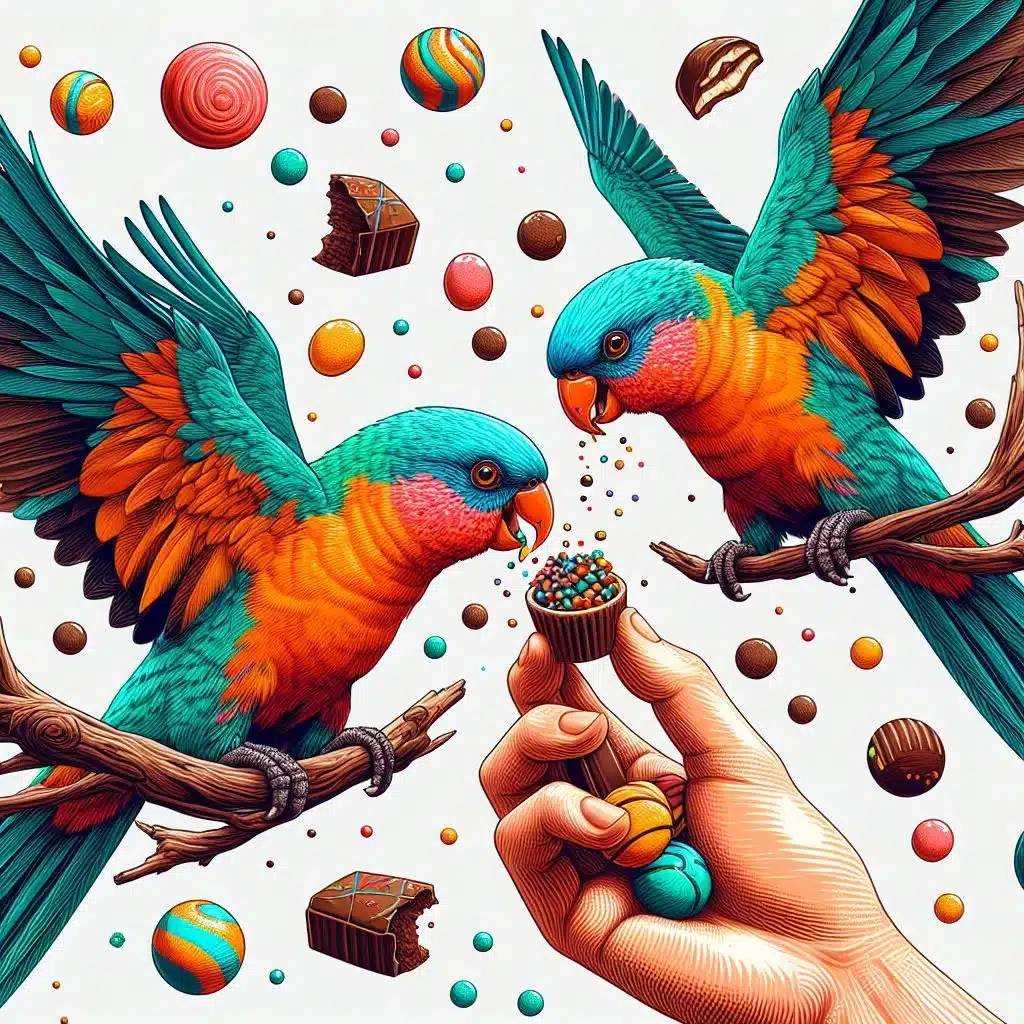Discover the truth about whether birds can eat chocolate and uncover essential insights into avian diets. Read on to explore the potential risks and benefits associated with feeding chocolate to our feathered friends.
In the realm of avian diets, questions often arise regarding what foods are safe and nutritious for our winged companions. One such query that frequently emerges is, “Can birds eat chocolate?” Delving into this topic is crucial for ensuring the well-being of our feathered friends. This comprehensive guide aims to address this inquiry while providing valuable insights into avian dietary habits.
Understanding Avian Diets
Exploring Bird Feeding Behaviors
Birds exhibit a diverse range of feeding behaviors influenced by their species, environment, and dietary requirements. From seed-eaters to insectivores, each bird species has unique nutritional needs.
Foraging Techniques of Birds
Birds employ various foraging techniques, including pecking, probing, and scavenging, to obtain their food. These behaviors are finely tuned to their ecological niche and play a crucial role in their survival.
The Verdict on Chocolate Consumption for Birds

Can Birds Eat Chocolate? Debunking the Myth
Contrary to popular belief, chocolate poses significant health risks to birds and should be strictly avoided in their diets. Theobromine and caffeine, two compounds found in chocolate, are toxic to birds and can lead to adverse health effects.
The Dangers of Theobromine and Caffeine
Theobromine and caffeine, present in varying concentrations in different types of chocolate, can cause symptoms such as vomiting, diarrhea, rapid heartbeat, and even death in birds. Even small amounts of chocolate can have detrimental effects on their health.
Navigating Safe Food Choices for Birds
Healthy Alternatives to Chocolate
While chocolate is off-limits for birds, there are plenty of safe and nutritious alternatives to consider. Opting for bird-friendly treats such as fresh fruits, vegetables, and specially formulated bird pellets ensures that your feathered companions receive essential nutrients without compromising their health.
Nutritional Benefits of Fresh Fruits and Vegetables
Fresh fruits and vegetables offer a myriad of vitamins, minerals, and antioxidants that promote overall health and well-being in birds. Incorporating a variety of colorful produce into their diet can enhance their immune system and support optimal nutrition.
Frequently Asked Questions (FAQs)
Q: Can birds eat white chocolate? A: No, birds should avoid all forms of chocolate, including white chocolate, due to the presence of theobromine and caffeine, which are toxic to them.
Q: Are there any safe chocolate alternatives for birds? A: Yes, birds can enjoy safe alternatives such as dried fruits, unsalted nuts, and bird-safe treats specifically formulated for their dietary needs.
Q: What should I do if my bird accidentally ingests chocolate? A: If your bird consumes chocolate, it’s crucial to seek immediate veterinary assistance. Prompt medical attention can help mitigate the adverse effects of chocolate toxicity.
Q: Can birds eat cocoa powder or cocoa beans? A: No, birds should avoid all products derived from cocoa, including cocoa powder and cocoa beans, as they contain toxic compounds harmful to avian health.
Q: How can I ensure a balanced diet for my pet bird? A: To provide a balanced diet for your pet bird, offer a variety of fresh fruits, vegetables, fortified bird pellets, and occasional treats in moderation. Consult with a avian veterinarian for personalized dietary recommendations.
Q: Is dark chocolate more toxic to birds than milk chocolate? A: Yes, dark chocolate contains higher concentrations of theobromine and caffeine compared to milk chocolate, making it more toxic to birds and other animals.
Conclusion
In conclusion, the question “Can birds eat chocolate?” receives a resounding no from avian experts. Chocolate poses severe health risks to birds due to the presence of toxic compounds such as theobromine and caffeine. As responsible bird owners, it’s imperative to prioritize their well-being by offering them safe and nutritious alternatives. By understanding the dangers of chocolate consumption and making informed dietary choices, we can ensure the longevity and vitality of our feathered companions.






